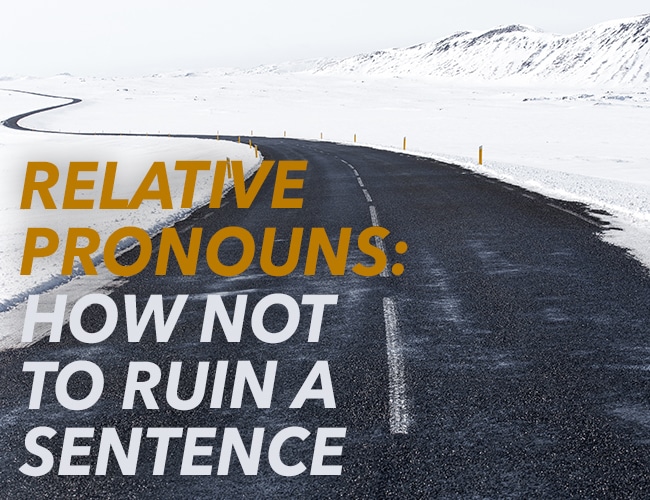
by Liz Bureman |
We all know there is a difference between I and me. Simply put, “I” is a subject, “me” is an object. Generally speaking, there aren’t any issues when you’re only referring to yourself.
The confusion starts when your first person character is joined by third person companions.

by Liz Bureman |
Oh, relative pronouns. You crazy, crazy kids. You can cause so much frustration with your misplaced thats, whos, and whichs. Let’s have a chat and sort you all out, shall we?
Let’s say you’re telling a story about Weston, a neurologist with a bionic elbow. When do you use which relative pronoun?

by Liz Bureman |
We’re tackling one of the less obvious grammatical foibles today. Did you know that there is a difference between lay and lie? Because there is! Let’s explore.
Other than the definition of “to tell an untruth,” lay and lie are often used interchangeably. But lay is a transitive verb, meaning it requires a subject and one or more objects. Lie, on the other hand, is an intransitive verb, which means that it doesn’t need an object.
So if you wanted to say that you (the subject) lay on the floor (the object) in the fetal position all day yesterday, that’s correct. If you said that you lay in said position all day regularly, that would be wrong.

by Liz Bureman |
Grammar is one of those funny things that everyone needs to know but that not everyone agrees on.

by Liz Bureman |
There are times to follow the rules of story, and there are times to break the rules. When should you use the three-act story structure, and when should you discard it entirely?




